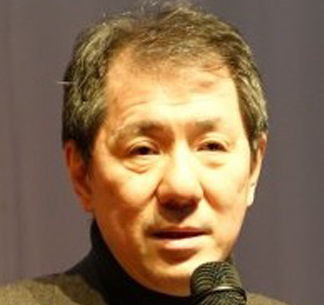For half a century after World War II, the United States pursued one of world history’s most successful national strategies: it nurtured the economic and institutional rebuilding of Europe and Japan, the development of other countries, especially in Asia, and bonded them economically, while protecting this strategy with superior military force. Beginning with the Marshall Plan, Presidents Truman and Eisenhower fashioned this bipartisan strategy, limiting military expenditure whenever it threatened resources for the core economic strategy, and all presidents through Clinton pursued it, the latter with particular vigor. This strategy defeated the Soviet Union, which also had a powerful military and a powerful ideology (however perverted the practice), but gave nearly exclusive priority to the military.
Analogues of this economics-focused strategy consolidated the security of U.S. allies. Japan became a big power despite lacking a strong military.
In South Korea, General Park Chung Hee took over a country inferior to the North politically, economically, and militarily, and shifted to an overwhelming priority for economic development; today South Korea is stronger in all respects due to an economy more than twenty times the size of that of its military-obsessed adversary. In Indonesia, General Suharto abandoned territorial claims to most of Southeast Asia in order to focus on development and made Indonesia the clear regional leader. China’s Deng Xiaoping, emulating them, cut the military budget from 16 percent of GDP to 3 percent in order to focus on development, and China became a great power in only thirty years.
In 2001, the United States abandoned its successful economics-focused strategy. For the first time in modern history, all major foreign policy positions were held by defense specialists: General Colin Powell as Secretary of State, Richard Armitage as his deputy, Donald Rumsfeld at Defense, Condoleezza Rice as National Security Advisor, all led by a former Defense Secretary, Vice President Cheney.
As a result, in planning the Iraq war, there was no economic voice; any development expert knew that dismissing the entire ruling class would be catastrophic.
Even after Great Revolutions like those of France and Russia, a country can only be run by the experienced bureaucracy. In Afghanistan, expenditures on economic development were pitiful and Rumsfeld insisted that economic development must be controlled by the military; the accumulated civilian expertise and success of half a century were contemptuously dismissed.
With its overwhelming military priority, the United States now has the most powerful military in world history.
Because of its exceptional competence and devotion, Americans rightly hold the military in higher esteem than any other government institution. But this great military has lost every war it has fought since the change of strategy, and continues to lose.
The problem lies not with the military but rather with lack of civilian leadership. Chopping off the economic arm and relying on one-armed military tactics was not partisan and was not a calculated decision. It was initiated by a right-wing Republican administration, then persisted under Democrats. It is sustained not by explicit strategy, but rather by inertia and interest group pressures. The lobby for ever-increasing military emphasis holds near-absolute sway in Congress, which imposes even weaponry and bases the Pentagon doesn’t want while starving the State Department and economic institutions.
Nor is the problem lack of money for a positive economic policy. Much of the needed local institution building and international trade regime development have minimal cost. Given scarce resources, Eisenhower and Truman trimmed back the Pentagon budget. Moreover, the almost exclusively military-focused strategy has turned out to be wildly expensive. Future historians will likely say that the United States wasted at least $2 trillion on unbalanced strategy in the Middle East and Afghanistan. The problem is mis-allocation.
Although all presidents through Clinton, indeed particularly Clinton, adhered to a balanced military-economic strategy, Congressional provincialism initiated the gradual abdication of U.S. economic leadership even before 2001.
The institutions of U.S. global leadership were the International Monetary Fund and World Bank (1944); the Marshall Plan (1947), followed by generous development assistance for the poorer countries; the U.S. dollar’s global dominance; and U.S. leadership through GATT and the World Trade Organization in a trade and investment regime that spread prosperity. Any enemy of U.S. global leadership must undermine these institutions. That is happening.
The preeminence of the dollar derives from the superior liquidity of dollar markets and from confidence that the U.S. Federal Reserve and the U.S. Treasury will provide liquidity in crises. Dollar liquidity has declined but remains greatly superior to all alternatives. Trust that the United States will help in crises has, however, been shattered, particularly in Asia. In the Mexican crisis of 1994, the United States used its Exchange Stabilization Fund to prevent Mexico’s currency crisis from becoming a catastrophe.
The Mexican intervention cost the United States nothing, but Congress prohibited future similar interventions.
When the Asian crisis began in Thailand in July 1997, the United States therefore could not intervene and some of America’s strongest Asian allies felt abandoned.
Punitive IMF conditions crashed Thailand’s economy and collapsed Indonesia’s banking system. In a precursor of the Asian Infrastructure Investment Bank controversy, the United States insisted that Japan withdraw an offer to create a recovery fund that the United States feared would compete with the IMF. Therefore, in Asian eyes, the United States was accountable for catastrophic IMF policies; distrust for the U.S.- Bretton Woods system persists.
Key Congressional restrictions continue. The United States has five standing swap agreements worth $333 billion; China has twenty-eight worth $499 billion.
While the U.S. executive has always backed the Bretton Woods system, Congress has undermined it. The World Bank and the IMF were designed, at Bretton Woods, for the world of 1944, in the scale of their resources and the structure of their governance. Afterward, presidents of both parties consistently supported augmentation of their resources to cope with a growing global economy. But from 2009, Congress has rejected this bipartisan tradition.
That refusal led directly into the recent controversy over China’s founding of the Asian Infrastructure Investment Bank. Outside Washington, the AIIB debate has focused on the scale of need, $8 trillion of investment over a decade. The World Bank ($223 billion) and the Asian Development Bank ($168 billion) have a combined capital of $379 billion. China and virtually all U.S. allies and the U.S. administration pressed for that capital to be increased, but Congress refused. China wants to strengthen these institutions; it is the U.S. Congress undermining them.
While the old institutions’ capital stagnates, China Development Bank is putting $190 billion into foreign loans, the New Development Bank has initial capital of $50 billion and authorized capital of $100 billion, the Silk Road Infrastructure Fund will have $62 billion, and AIIB will have $100 billion, overshadowing the Bretton Woods institutions. Given those numbers, the U.S. refusal to capitalize the existing institutions ensures that they will lose leadership.
Likewise on governance reform. For many years there has been a global clamor, mainly from friends and allies of the United States, supported by the U.S. president, to revise the governance of these and other postwar institutions to reflect today’s world. But Congress rejects reform.
The United States has three options: update existing institutions sufficiently that they can provide leadership; refuse modernization and embrace new institutions that fill the resulting vacuum; or refuse modernization of the Bretton Woods institutions and oppose new ones.
The first two options both provide a decent chance that the United States will remain the preeminent economic leader, albeit with more influential colleagues. Ironically, Congressional choice of the third option ensures that the new institutions will be preeminent and that China will be preeminent within them.
Moreover, the Obama administration’s argument that China can’t be trusted to provide sound AIIB governance was worse than weak. Some dispassionate observers even think AIIB governance will be superior to that of the Bretton Woods institutions, because it will properly represent emerging countries, because China has taken the lead in promoting green financial structures, and because the World Bank is musclebound, unable to make decisions in reasonable time at reasonable cost. China’s creation of AIIB was based on a decision that, after having lent over $600 billion unilaterally, its funding would be more effective in a multilateral institution—a decision aligned with U.S. interests and strongly supported by leading Europeans as system supportive, not destructive.
The global financial crisis degraded U.S. economic leadership in multiple ways. As China’s most respected bank reformer told this writer, “We discovered that our teacher didn’t know what he was talking about.”
During the global financial crisis, trade finance suffered a severe collapse—one that for Asia’s trade dependent economies was potentially catastrophic. Not surprisingly, Asian banks, especially Chinese banks, moved to limit the shortfall. After the global financial crisis, global financial leaders (dominated by Americans and Europeans) agreed on new bank capital standards that heavily burdened trade finance, even though trade credits are fully collateralized and self-liquidate in less than a year. These standards made trade finance relatively less attractive and thereby ensured a continued shift toward nonwestern banks. That set the stage for what seemed impossible five years ago: the Chinese renminbi has surpassed the euro as the second most important settlement currency.
Copyright: The International Economy



